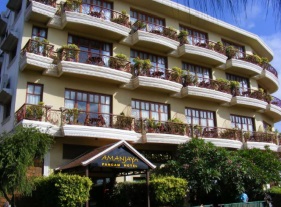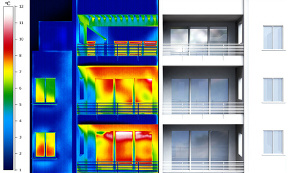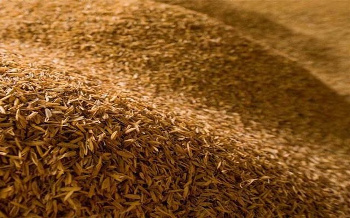 IED, together with its local partner CCDE, implemented The Sustainable Rural Electrification Master Plan (SREP) which was officially endorsed by the Ministry of Industry, Mines and Energy of Cambodia (MIME) in April 2011. The SREP identified a high potential for the introduction of renewable energy supply for small isolated Rural Electrification Enterprises currently operating with diesel/fuel. Among the 200 existing diesel mini-grids with very high production costs due to inefficient gensets and poor design of distribution systems, any opportunity for the development in rural areas is currently prevented. These constraints have a strong impact in terms of energy access to the poorest, sustainability of the service and greenhouse gas emissions. One example of a possible renewable energy solution is the rice husk gasification project in Char Chuck, Siem Riep Province.
IED, together with its local partner CCDE, implemented The Sustainable Rural Electrification Master Plan (SREP) which was officially endorsed by the Ministry of Industry, Mines and Energy of Cambodia (MIME) in April 2011. The SREP identified a high potential for the introduction of renewable energy supply for small isolated Rural Electrification Enterprises currently operating with diesel/fuel. Among the 200 existing diesel mini-grids with very high production costs due to inefficient gensets and poor design of distribution systems, any opportunity for the development in rural areas is currently prevented. These constraints have a strong impact in terms of energy access to the poorest, sustainability of the service and greenhouse gas emissions. One example of a possible renewable energy solution is the rice husk gasification project in Char Chuck, Siem Riep Province.
The Char Chuck Commune consists of 20 villages, of which only four (500 households) are supplied with intermittent power by a Rural Electrification Enterprise, operating since 2006 and running an old and very inefficient diesel genset, and having a long distribution network which has high loss levels. The district capital is located in the Commune, which means there are substantial rice production and milling activities going on, and a large number of potential clients are present, such as telecom antennas providers, welders, ice makers, local health center, local bank, and others.
Given the local availability of rice husk, IED with a strong support of the Ministry of Industry, Mines and Energy, in collaboration with the Electricity Authority of Cambodia and with co-financing from UNIDO, is setting up a rice husk gasification unit. It comprises a 150 KW gasifier, a dual fuel genset and a 100% gas genset, which will provide 24h power to the local Rural Electrification Enterprise. The distribution network has been upgraded to reduce losses by at least 30%.
The target is to achieve a 50% increase in the number of customers in 5 years, provide additional services with a positive social and economic impact, achieve about 30% decrease in the end-user tariff, 30% decrease in generation cost, improve financial sustainability of the local operator, and achieve more than a 50% decrease in CO2 emissions per kWh. Hopefully, tariff and service levels allowing for productive uses will be achieved, such as irrigation, serving the telecom relays, cooling produce, ,and improvement of living conditions of the poorest, whose consumption level is highly determined by the tariff.
Providing a cheaper and clean source of power will have a positive impact on welfare and health, as well as the environment – and will contribute at a local level to achieving the MDGs.
There are a large number of rice mills in Cambodia, which means there is an excess of husk which can be harnessed in a number of Provinces. In other areas, different forms of biomass offer opportunities, such as residues from rubber plantations, corn, cashew nut areas and others.
GASIFIER POWER PLANT AND GAS ENGINE, ONE OF THE FIRST POWER PLANTS IN THE WORLD TO OPRATE CONTINUOUSLY AND IN A RURAL CONTEXT.
In Cambodia, IED identified, studied and oversaw the project management and financial engineering for the development, construction and operation of a 200 kW gasifier to supply electricity to a rural community of some 4,000 households, 24 hours a day, 7 days a week. This project utilises rice hulls, an agricultural waste material which farmers disposed of until now. This gas engines. The engines operates on 100% gas and runs for 24 hours per day. Thanks to this process, which is clean, sustainable and cost-efficient (costs have been more than halved), the village of Charchuk receives electricity 24 hours a day, to be used for daily household requirements or for revenue-generating activities which boost the local economy and create jobs.
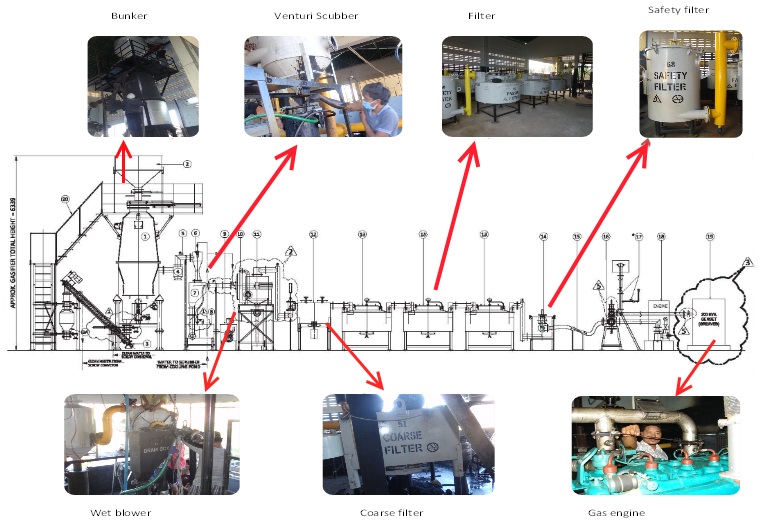

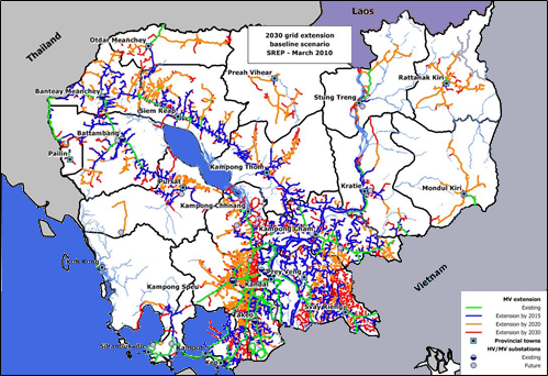
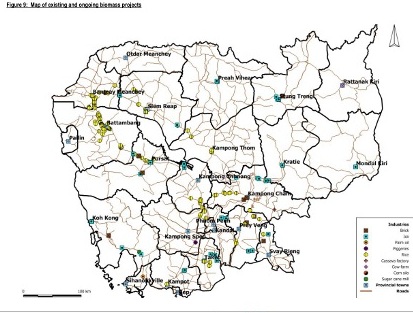
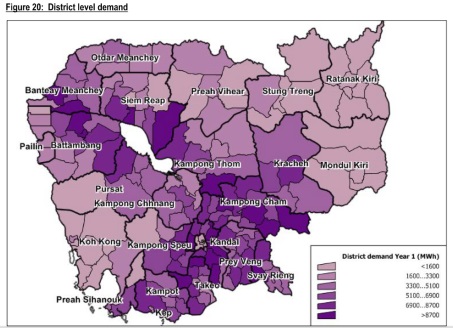

 CCDE is specializing in conducting a few feasibility studies on Renewable Energy Sources
CCDE is specializing in conducting a few feasibility studies on Renewable Energy Sources In collaboration with IED's Experts, CCDE implemented some energy efficiency projects in Cambodia in the SME sector mainly. As part of thisexpertise, CCDE is
In collaboration with IED's Experts, CCDE implemented some energy efficiency projects in Cambodia in the SME sector mainly. As part of thisexpertise, CCDE is
